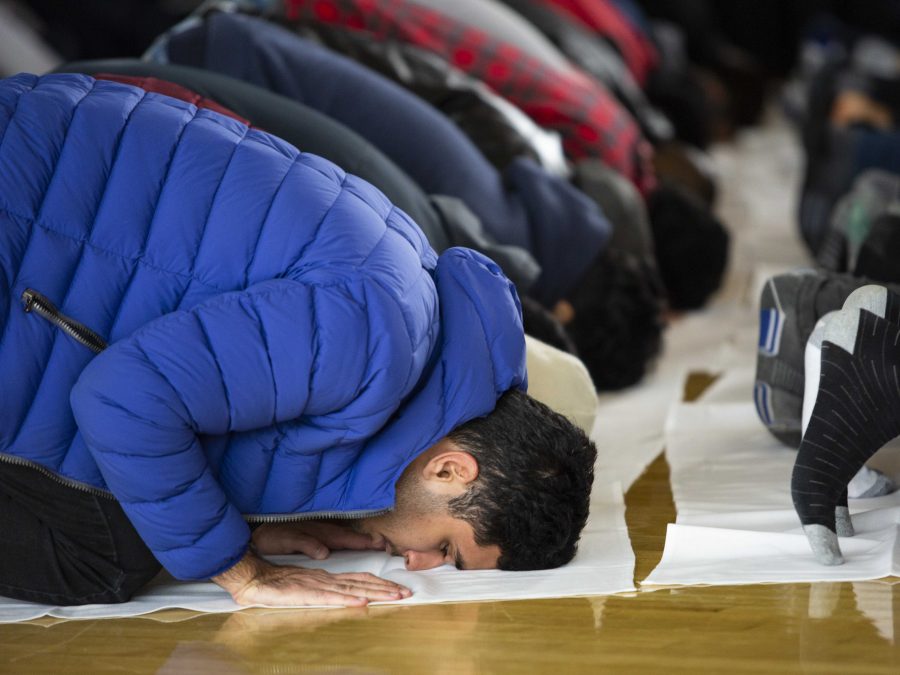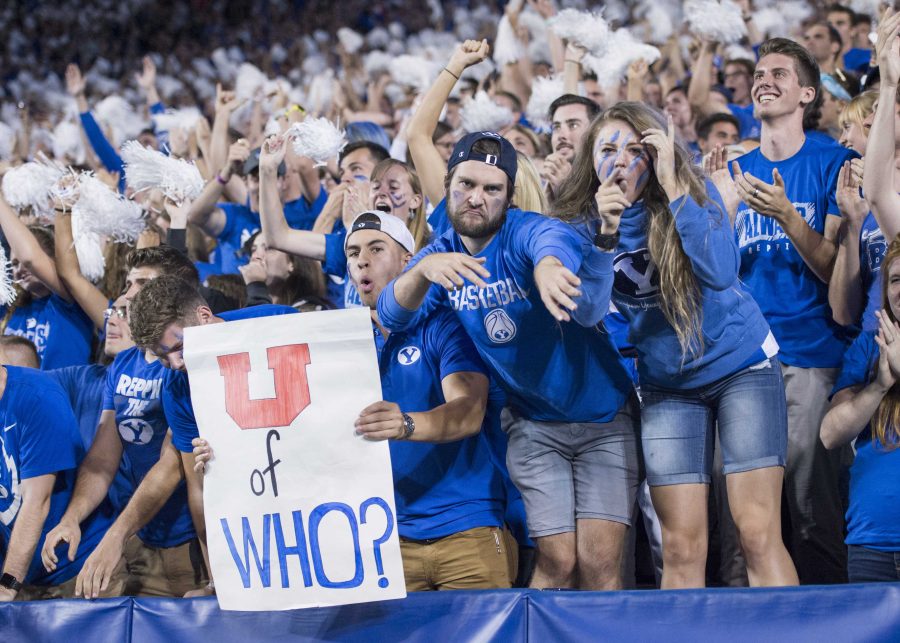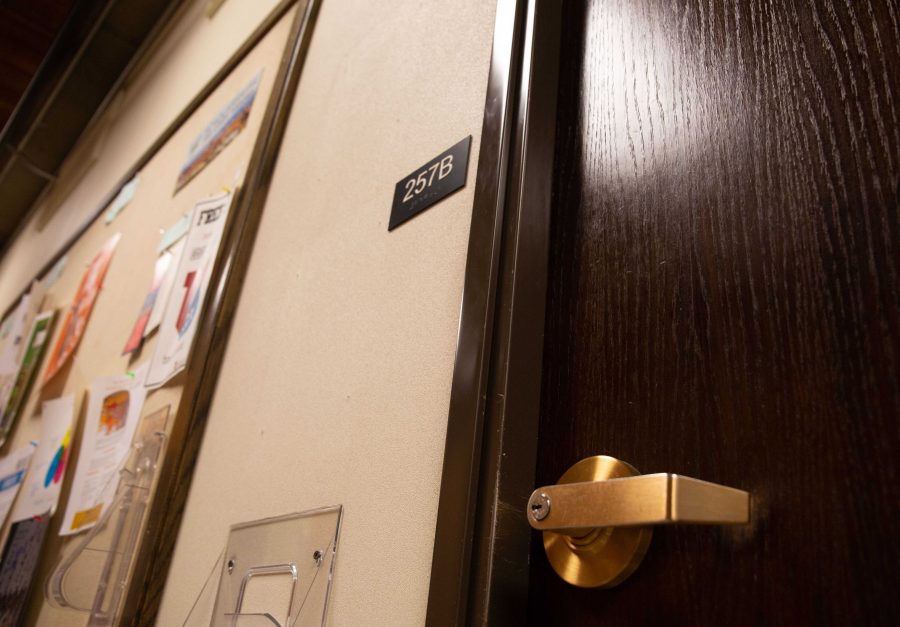When HB399, a bill banning conversion therapy for LGBTQ minors, was proposed in the 2019 Utah State Legislative Session, there was reason to be hopeful. In its original form, the bill won support from several key groups involved in the fight for equality, including the Human Rights Campaign, Encircle and the Utah Suicide Prevention Coalition. The Church of Jesus Christ of Latter-day Saints maintained a neutral position following early negotiations on the original bill — a positive sign for proponents for a ban on conversion therapy. (Troublingly, the church is continually included in public policy negotiations without offering any expertise or relevant connections.) Banning conversion therapy seemed like a no-brainer, even for conservatives — the practice is clearly cruel, has no scientific backing and is linked to mental illness and suicide. The bill was even sponsored by a Republican member of the Utah House, Rep. Craig Hall. For a while, it seemed like conversion therapy might actually be banned in Utah.
In its early stages, HB399 resembled an earlier legislative victory. In 2015, Utah passed an anti-discrimination bill that protected both LGBTQ citizens and religious institutions. SB296 was a compromise at best, but it still guaranteed employment and housing protections in one of the country’s most conservative states. The conversion therapy bill felt similar — incremental, essential protection — and another small step forward for a community often forced to fight for their basic humanity.
This small step was short lived, however. Disrupting a delicate compromise, Reps. Karianne Lisonbee and Brady Brammer proposed sweeping amendments during a House Judiciary Committee hearing that would significantly limit the bill’s power to effectively halt conversion therapy. After Gov. Gary Herbert indicated support for this new version, Troy Williams of Equality Utah and Taryn Hiatt with the America Foundation for Suicide Prevention resigned from the governor’s anti-suicide task force. Following the change, student activists, some from the University of Utah, organized a sit-in protest outside the governor’s office to demand answers. After a few hours, Lt. Gov. Spencer Cox walked out of the doors holding a signed apology on behalf of the Governor. Cox talked with the students, joining them as they sat on the floor to hear their perspective.
Sadly, the fight to end conversion therapy must continue. HB399 was circled by Hall and was not passed prior to the end of the session. Because the deliberations dissolved into a dramatic showdown, the fiercest supporters of the original legislation were alienated and the clock ran out before they could come to a solution. The bill’s sudden — and, in hindsight, unsurprising — collapse serves as a reminder of just how far Utah has to go before achieving equality.
Almost a month later, this debacle might seem like yet another example of conservative lawmakers neglecting to protect vulnerable people. This case, in all of its twists and turns, however, is an instructive microcosm of the fractured, tense state of Utah politics.
LGBTQ activists in Utah are used to pursuing progress by couching proposed changes with compromise. They must negotiate with a conservative supermajority, and even if a Republican legislator personally supports their cause, they themselves must navigate their conservative base to obtain reelection. Unfortunately, the handling of this bill reveals the limits of negotiation and moderation. In 2015, compromise made sense. At this time, on this issue, it doesn’t.
Lt. Gov Cox is a useful example of this difference. Relatively speaking, Cox is more progressive on LGBTQ issues than the vast majority of his fellow Republicans on the Hill. But, his willingness to support the neutered version of HB399 reveals some major blind spots. Perhaps he lacked an understanding of the issue, or simply wanted the high-profile legislation to pass regardless of its technicalities. Amelia Damarjian, the organizer of the protest, pointed out that the new version would have actually “institutionalized conversion therapy” — as long as counseling did not involve physical harm, it would have been legally protected. In Cox’s effort to negotiate any kind of deal, he lost sight of the people he most wanted to protect.
Some well-meaning (and other less well-meaning) lawmakers got lost in a game of false equivalency. Balancing the beliefs of homophobic parents and irresponsible therapists with the humanity of vulnerable queer youth is impossible because they are not equivalent needs. Sexuality cannot be changed, nor should it be taught as something in need of correcting. Conversion therapy itself is a damaging practice based on ideology alone.
Even from a purely scientific perspective, compromise is unwarranted. The American Psychiatric Association strongly opposes conversion therapy, and recommends that all states “ban the harmful and discriminatory practice.” Too many Utah lawmakers pride themselves on moderation for moderation’s sake, but this is an issue where moderation can be actively harmful. Conversion therapy uses techniques that are mentally and physically abusive. There is no compromise to be made on a practice that tells people that they are unnatural and in need of repair. Induced vomiting or electrical shock therapy have been used in conversion therapy to “fix” LGBTQ people. Now, finding a middle ground is not only illogical but unethical.
As is common for controversial issues in Utah politics, religion loomed uncomfortably over this entire debate. HB399 is the latest dispiriting reminder of religion’s inappropriate role in our legislative process. The church may have supported — or, more accurately, not opposed — the original bill, but they are still complicit in its failure. Church doctrine around LGBTQ people may have contributed to the unwillingness of some legislators to support the bill.
For decades, the church has been vocally against the rights of queer people. Their stance has profoundly influenced the culture and laws of Utah. While the church’s minuscule steps in the right direction have earned overblown praise, their central doctrine remains profoundly homophobic. While the church supported the 2015 anti-discrimination bill, they pushed a new policy barring children of LGBTQ couples from being baptized within the same year.
After HB399 failed, the Associated Press reported that Rep. Lisonbee had posted anti-LGBTQ statements on her Facebook page back in 2013. She suggested that homosexuality leads to suicide and supported therapy that would help people “successfully overcome … unwanted same-sex attraction.” Lisonbee’s views, abhorrent as they are, are not out of the mainstream for members of the church. The church has historically supported conversion therapy, including electrical shock aversion therapy. Though their position has shifted, the church has not yet reckoned with its violent history or the ways it continues to demonize queer members. Lisonbee’s opinions are not a deviation from the norm. They are a reminder of why this legislation is necessary in the first place.
Conversion therapy is not a rare anomaly or an antiquated, embarrassing blemish from church history. It still exists, and it will threaten the lives and well-being of queer youth until the legislature has the courage to stand up against it. I grew up as a gay member of the church. When I was 16, a local church leader recommended a therapist, whom I met with to discuss issues unrelated to my sexual orientation. During our first session, this counselor gave me a book that taught young boys how to “cure” their homosexuality. I never went back.
Hopefully, the governor will sign a bill that completely bans conversion therapy in Utah by the end of the 2020 legislative session. This last month, however, reminded me why I don’t place much faith in local lawmakers. Yet, there is one thing that does give me faith, and stops me from curdling into permanent cynicism. Brave young people spoke publicly about their experiences with conversion therapy, used social media to hold politicians accountable and received an apology from the most powerful man in the state. I don’t know what future negotiations will look like, but it better include a prominent role for young activists. They represent the kind of Utah I want to live in.
This article is part of the Poynter College Media Project. Click here for more stories and information on the topic “Are U Mormon?”



















